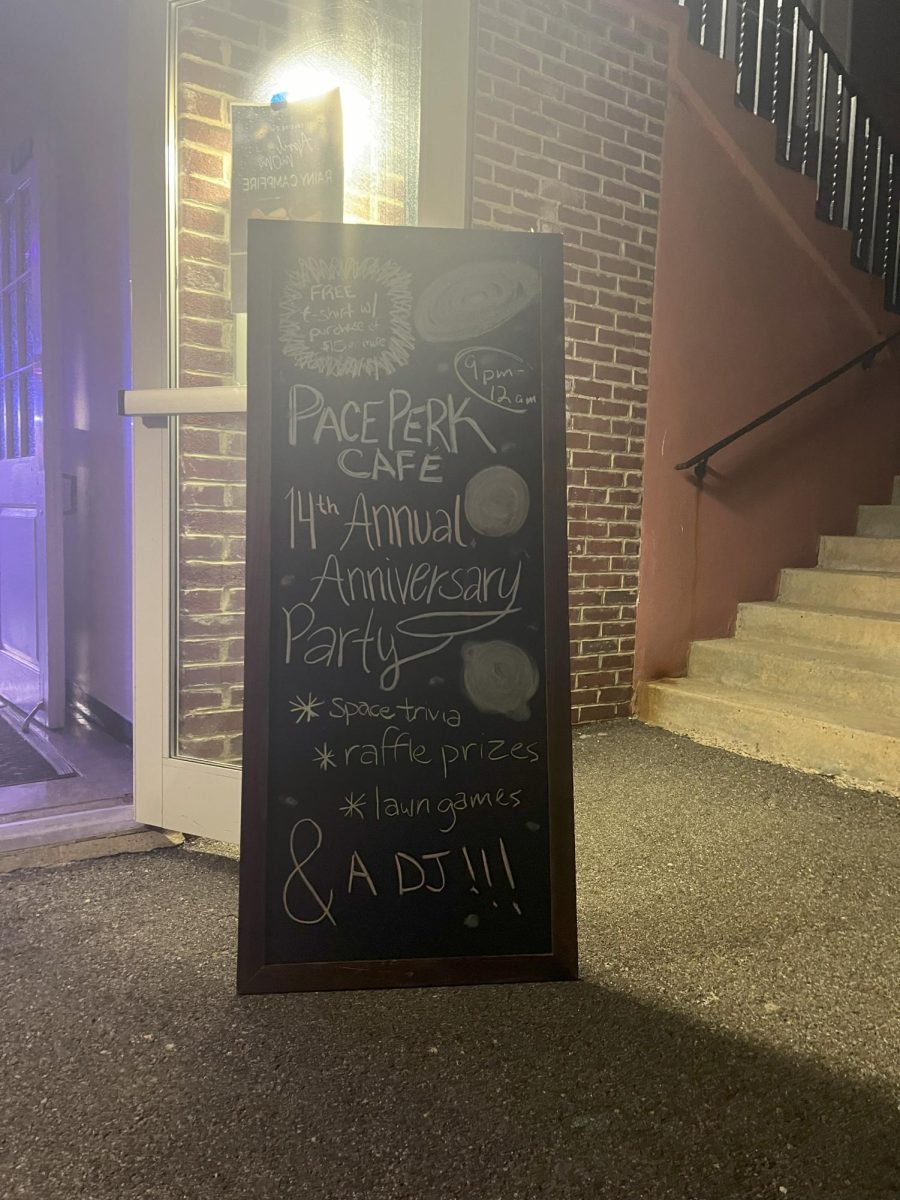A Universal University
Christianity on Campus

March 12, 2014
Christianity is “the most widespread [religion] and has the largest number of adherents”, according to novelist Hutson Smith, writer of The World’s Religions.
Being that the purpose of my column is to bridge the gap between cultures and belief system at Pace, I feel that it is most appropriate to examine the basic beliefs of Christianity and its presence on campus.
Within Christianity, there are three main divisions; Roman Catholicism, Eastern Orthodoxy and Protestantism. This article addresses nondenominational Christianity and the basic teachings of Christian scripture. For example, Christianity is a monotheistic religion, in that its followers believe there is only one true God. Furthermore, believers recognize Jesus as the Son of God sent to deliver people from death and sin, and that Jesus’ ultimate message was to love God and, of course, love one’s neighbor as one’s self.
“Christians believe in justification by faith–that through their belief in Jesus as the Son of God, and in his death and resurrection, they can have a right relationship with God whose forgiveness was made once and for all through the death of Jesus Christ,” BBC’s webpage on basic Christian beliefs reads.
Christians believe in a Trinity (God as the Father, the Son, and the Holy Spirit).
“…that God took human form as Jesus Christ and that God is present today through the work of the Holy Spirit and evident in the actions of believers,” BBC’s webpage said
Christians communicate with God through prayer, both in congregations and individually. They are baptized once in their life in order to join the faith as a sign of their commitment. At a certain age, generally seven or so, people in some Christian denominations can begin receiving communion, a celebration of Jesus’s Last Supper, during which he broke a loaf of bread and divided it amongst his disciples, telling them to eat it for it was his body. Another key element of this faith is the belief in the afterlife.
Christianity has a presence in several places at Pace, one of which being Campus Crusade for Christ (CRU). On Org Sync, CRU describes itself as “an international, nondenominational Christian organization that connects people to God through a relationship with Jesus Christ and provides resources and opportunities for spiritual growth.”
CRU President Lindsay Burgess explained the mission of the religious organization.
“CRU is for people to have a one-on-one relationship with God,” said the junior journalism major, “for people to be comfortable expressing their faith, and to inspire others.”
Part of the organization’s attempt to fulfill this mission presents itself in their weekly meetings, where each person in attendance shares a story about one good event which took place during their week. The members pray for each other when they are experiencing stress or hardship.
“A lot of people on college campuses experience depression and don’t know where to turn to,” said Burgess in reference to Christianity on campus.
She considers CRU to be a family, community and a support system for anyone who might be feeling down and alone.
“I want [CRU] to be a nice, open platform for people,” she said. “Love is the main thing we want to teach, and that the Word can be applied in practical situations.”
CRU aims to involve people who do not consider themselves to be members of the Christian faith through extending personal invitations, informing students about ongoing events and by inviting guest speakers who can address a broad range of universally relevant life topics.
The themes of Christianity that CRU seeks to implement include love, faith, joy, community, gratitude, involvement and self-improvement. Burgess believes the annual philanthropic event, Operation Christmas Child, set a good example for helping others.
“I felt we needed to do more outreach and hold quality events,” she said.
Christianity is practiced across the globe on multiple continents and in several countries, states and universities which extend to Pace, as demonstrated by CRU and the many practicing Christians on campus. In addition to CRU and other religious organizations, our campus has a remarkable Philosophy and Religious Studies department which offers courses on various religions and theologies.
One never knows how an experience might impact his involvement and interconnectedness on campus, no matter how daunting the diversity between students may appear.











